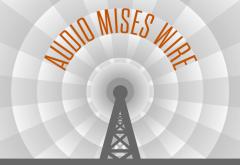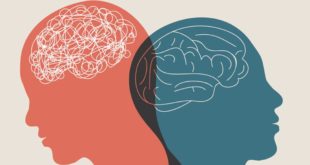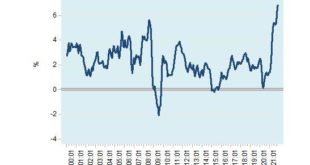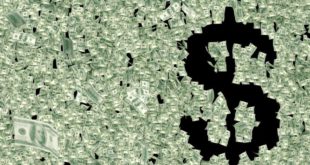The Federal Reserve now owns $2.6 trillion in mortgages. That means about 24 percent of all outstanding residential mortgages in this whole big country reside in the central bank. Original Article: “The Federal Reserve Keeps Buying Mortgages” Runaway house price inflation continues to characterize the U.S. market. House prices across the country rose 15.8% on average in October 2021 from the year before. U.S. house prices are far over their 2006 Bubble peak, and...
Read More »Stop Trying to Turn Economics into a Branch of Psychology
Recently, a relatively new economics called behavioral economics (BE) has started to gain popularity. Its practitioners, such as Daniel Kahneman, Vernon Smith, and Richard Thaler, were awarded Nobel Prizes for their contribution in the field of BE. The BE framework emerged because of dissatisfaction with the neoclassical theory regarding consumer choices. In the neoclassical theory, individuals are presented as if a scale of preferences is hard-wired in their heads....
Read More »Germany’s New Green Stimulus Plan Won’t Fix the Economy
Recently, there has been a debate in Germany on the constitutionality of additional government borrowing of €60 billion. The borrowing is debated because Germany has a constitutional debt brake. The debt brake limits the possibility of the government to indebt itself and pushes it toward a balanced budget in normal times. In times of emergency, however, the debt brake allows for exceptions and higher deficits to fight the emergency. Unsurprisingly, huge amounts of...
Read More »When Higher Prices Are Not Inflation
Back to 2020, the federal government’s covid-mandated shutdown of meat production plants hobbled the nation’s meat production capabilities, leaving farmers with nowhere to send their beef. This resulted in them having to cull cattle and other livestock. The uncertainty caused farmers to scale back their production at the time, which Arun Sundaram told CNBC “can affect production more than a year, year and a half down the road.” Processing facilities had labor...
Read More »Global Governance versus Freedom and Free Enterprise
When assailing global governance, pundits rarely comment on its impact on small countries. Yet the degree to which small countries are ignored by global institutions—like the G7, the International Monetary Fund, and the World Bank—helps to illustrate how institutions of global governance tend to primarily reflect the values of managerial elites from large and wealthy states. That is, global policies are earnestly tailored by rich states in the West in response to...
Read More »Stop Pretending Price Inflation Is a Result of “Too Much” Profit
Some commentators attribute the latest sharp increase in the Consumer Price Index to businesses pushing prices of goods higher in order to secure higher profits. (See the New York Times article “Democrats Blast Corporate Profits as Inflation Surges,” January 3, 2022). Note that the yearly growth rate of the Consumer Price Index jumped to 6.8 percent in November 2021 from 1.2 percent the year before. However, is it true that businesses are determining the prices of...
Read More »What the Regime Will Do to Fight Private Digital Currencies
During a confirmation hearing with the US Senate this week, Fed chairman Jerome Powell was asked about whether or not a digital currency issued by a central bank could exist side by side with private cryptocurrencies. Powell responded that there is nothing that would prevent private cryptos from “coexisting” with a “digital dollar.” This, of course, is obviously true so long as federal regulators do not decide to ban the usage of cryptocurrencies. Business...
Read More »The New Deal and the Emergence of the Old Right
During the 1920s, the emerging individualists and libertarians — the Menckens, the Nocks, the Villards, and their followers — were generally considered Men of the Left; like the Left generally, they bitterly opposed the emergence of Big Government in twentieth-century America, a government allied with Big Business in a network of special privilege, a government dictating the personal drinking habits of the citizenry and repressing civil liberties, a government that...
Read More »How Easy Money Inflated Corporate Profits
In the incessant media discussion about whether inflation is transitory there is a big elephant in the room about which all are silent. Perhaps strangely some do not see it. Others for whatever reason pretend it is not there. The elephant is the fantastic surge in US corporate profits that monetary inflation has fueled during the second year of the pandemic. This elephant’s unremarked appearance is likely transitory, unlike the simultaneous jump in US consumer...
Read More »How GDP Stats Create the Illusion of Fed-Fueled Economic Growth
Most experts tend to assess the strength of an economy in terms of real gross domestic product (GDP). The GDP framework looks at the value of final goods and services produced during a particular time interval, usually a quarter or a year. The GDP is formed as the summation of consumer outlays on goods and services; outlays by businesses on plants, machinery, and inventories; outlays by government; and exports less imports. An increase in consumer outlays, businesses...
Read More » Swiss Economicblogs.org
Swiss Economicblogs.org










